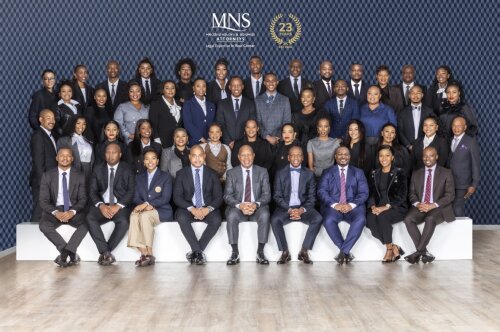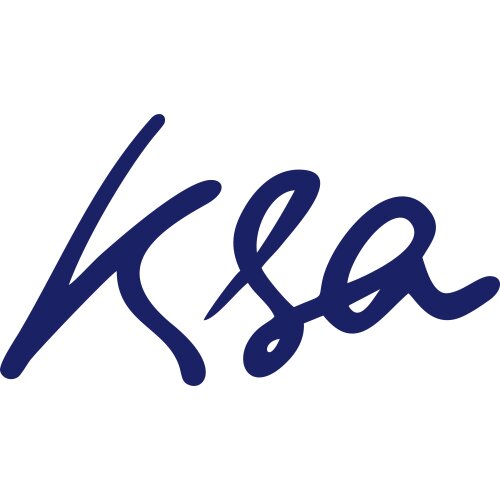Best Merger & Acquisition Lawyers in Johannesburg
Share your needs with us, get contacted by law firms.
Free. Takes 2 min.
List of the best lawyers in Johannesburg, South Africa
About Merger & Acquisition Law in Johannesburg, South Africa
Merger & Acquisition (M&A) law in Johannesburg, South Africa, is a dynamic and important field that oversees the combination of two or more business entities. Johannesburg, as a key financial center in South Africa, is home to numerous corporate transactions, making M&A law a critical element of its business landscape. The legal framework around M&A here is structured to facilitate business growth while ensuring compliance with local regulations, competition laws, and fair practices. This field involves understanding company law, securities law, tax implications, and the potential socio-economic impact brought about by structural changes in business ownership.
Why You May Need a Lawyer
Navigating the complexities of M&A transactions can be challenging without professional guidance. Situations that may require the assistance of a lawyer include interpreting complex corporate laws, negotiating terms of an M&A deal, filling and understanding required legal paperwork, due diligence for uncovering potential risks, and ensuring regulatory compliance. Additionally, a lawyer can provide strategic advice on structuring deals to maximize benefits and minimize risks, represent your interests in negotiations, and provide defense strategies if legal issues arise from the transaction.
Local Laws Overview
In Johannesburg, several local laws are especially pertinent to M&A activities:
Companies Act 71 of 2008: This act governs the regulation of business entities, overseeing corporate governance, financial disclosures, and shareholder rights, all essential in M&A processes.
Competition Act 89 of 1998: This act is crucial as it ensures that mergers and acquisitions do not create unfair market conditions by reducing competition. Transactions often require approval from the South African Competition Commission.
Tax Legislation: Various tax laws affect M&A, from capital gains tax to transfer duties, making it important to consult with tax professionals or legal experts who specialize in this area.
Employment Equity and Labour Relations Acts: Any M&A process must consider the implications for employees, ensuring compliance with local labor laws and addressing any layoffs or restructuring concerns that may arise.
Frequently Asked Questions
What is the role of due diligence in M&A?
Due diligence is a critical process of investigating and evaluating a business to uncover any potential risks or liabilities. It involves reviewing financial statements, contracts, legal obligations, and compliance status to inform the decision-making process during an M&A transaction.
How does competition law affect M&A in Johannesburg?
Competition law requires that M&A transactions do not significantly hinder competition within the market. Particular transactions may need to be reviewed and approved by the Competition Commission to ensure they comply with fair trade practices and do not create monopolies.
What steps are involved in a typical M&A transaction?
Generally, M&A transactions involve strategic planning, identifying potential targets, conducting due diligence, valuation and negotiation, securing financing, agreement drafting, and post-merger integration.
Are there any restrictions on foreign ownership in M&A deals?
While South Africa welcomes foreign investment, there may be sector-specific restrictions and regulatory approvals required, especially in industries connected to national security or critical infrastructure.
How are employees impacted by M&A activity?
Employment contracts and agreements may be revisited during M&A processes. The Labour Relations Act mandates consultation with employees about significant restructuring, and there may be considerations for redundancy and employee rights.
When is regulatory approval needed for an M&A deal?
Regulatory approval is often necessary when the transaction significantly impacts market competition or involves sensitive industries. The South African Companies and Trust Commission and the Competition Commission are key regulatory bodies in this regard.
What taxes are involved in M&A transactions?
Taxes can include capital gains tax, value-added tax (VAT), stamp duties, and transfer duties, depending on the nature of the transaction. Consulting with a tax expert is crucial for navigating these complexities.
Can confidentiality be maintained during an M&A process?
Confidentiality is vital in M&A deals, and nondisclosure agreements (NDAs) are often employed to protect sensitive information exchanged during the process.
What legal structures are common in M&A transactions?
Common structures include mergers, acquisitions, joint ventures, and asset purchases. Each structure has unique legal and tax implications.
What is the significance of valuation in M&A?
Valuation determines the worth of a business being acquired or merged. Accurate valuation is crucial for negotiating terms of the deal and ensuring fair compensation.
Additional Resources
Consider consulting the following resources for more insights:
South African Companies and Intellectual Property Commission (CIPC): Provides regulatory guidelines and resources for businesses and M&A activity.
Competition Commission South Africa: Information on regulatory requirements and competition laws concerning M&A.
South African Revenue Service (SARS): Offers guidance on tax obligations linked to M&A transactions.
M&A Law Firms: Specialized law firms in Johannesburg can provide up-to-date advice and support throughout the M&A process.
Next Steps
If you require legal assistance in M&A matters, consider taking the following steps:
Identify Your Needs: Determine the specific nature of legal assistance you require for your M&A activities.
Seek Expert Consultation: Contact a legal expert specializing in M&A who understands the local Johannesburg context. Initial consultations can help outline your legal path.
Prepare Documentation: Gather all relevant documents, such as financial statements and legal agreements, to facilitate discussions with your legal team.
Consider Financial and Regulatory Impacts: Evaluate how legal decisions may affect the financial and regulatory standing of your business.
By taking these steps, you can ensure that your M&A transactions are managed effectively and in compliance with the necessary legal frameworks.
Lawzana helps you find the best lawyers and law firms in Johannesburg through a curated and pre-screened list of qualified legal professionals. Our platform offers rankings and detailed profiles of attorneys and law firms, allowing you to compare based on practice areas, including Merger & Acquisition, experience, and client feedback.
Each profile includes a description of the firm's areas of practice, client reviews, team members and partners, year of establishment, spoken languages, office locations, contact information, social media presence, and any published articles or resources. Most firms on our platform speak English and are experienced in both local and international legal matters.
Get a quote from top-rated law firms in Johannesburg, South Africa — quickly, securely, and without unnecessary hassle.
Disclaimer:
The information provided on this page is for general informational purposes only and does not constitute legal advice. While we strive to ensure the accuracy and relevance of the content, legal information may change over time, and interpretations of the law can vary. You should always consult with a qualified legal professional for advice specific to your situation.
We disclaim all liability for actions taken or not taken based on the content of this page. If you believe any information is incorrect or outdated, please contact us, and we will review and update it where appropriate.















